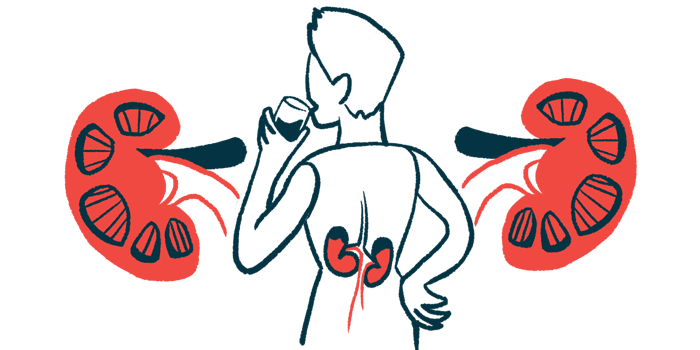Severe kidney injury common at aHUS onset, regardless of triggers: Study
Cancer, pregnancy, acute infections most common triggers for aHUS
Written by |

At the onset of atypical hemolytic uremic syndrome (aHUS), patients are already showing signs of severe kidney injury, regardless of the specific triggers or disease-related clinical conditions they might also harbor, a registry study has found.
Cancer, pregnancy, and acute infections were identified as the most common triggers before the onset of aHUS.
The “diagnosis of aHUS should be considered even in the presence of other associated triggers or clinical conditions, which is likely to facilitate faster implementation of targeted treatment,” researchers wrote.
The study, “Characterization of patients with aHUS and associated triggers or clinical conditions: A Global aHUS Registry analysis,” was published in the journal Nephrology.
In aHUS, a part of the immune system called the complement cascade becomes overactive, driving inflammation and blood clotting in small blood vessels, especially in the kidneys. It belongs to a larger group of disorders, called thrombotic microangiopathies (TMAs), which are characterized by the formation of blood clots in small blood vessels, leading to organ damage.
Most patients had mutations in complement genes that increase aHUS risk
Most patients have mutations in complement genes that make them more prone to develop aHUS. However, even in such cases, the disease tends to develop only after a triggering event, which can include certain infections, pregnancy, or a kidney transplant.
However, “substantial uncertainty remains around the conditions which can lead to complement cascade activation and subsequent development of aHUS,” the researchers wrote.
To assess the different types of triggers and clinical conditions associated with aHUS, as well as their possible association with certain clinical features, a group of international researchers analyzed data from children and adults with a registered single trigger or clinical condition before the onset of aHUS. All of them had enrolled in the Global aHUS Registry (NCT01522183) between April 2012 and June 2021.
Of 1,947 enrolled patients, 307 met the inclusion criteria and were included in the analysis.
Overall, cancer was the most common clinical condition before the onset of aHUS (18.9%), followed by pregnancy (17.3%), and acute infection (17.3%).
Top triggers: acute infection, early aHUS onset, pregnancy, cancer
Among the 78 children and adolescents included in the analysis, the top two triggers were acute infection (35.9%) and early onset of aHUS itself (occurring within 30 days after birth; 32.1%). In the 229 adult patients, pregnancy was the most common trigger (23.1%), followed by cancer (22.3%).
In the 69 patients with a mutation in a complement gene and/or with anti-complement factor H (CFH) antibodies, the most frequent triggers were pregnancy (20.3%) and acute infection (18.8%).
In the 99 remaining patients who did not have genetic mutations or CFH antibodies, malignancy was the most frequently observed condition (26.3%), followed by pregnancy (16.2%).
Patients with an associated trigger or clinical condition were generally more likely to be adults at aHUS onset, unless they had an acute infection or early-onset aHUS.
In patients with an acute infection or malignant high blood pressure, or who underwent a kidney transplant, the first symptoms of aHUS arose within a median of one day after the triggering event, while in those with early-onset aHUS, it took a median of 18 days.
Triggers, clinical conditions generally affected more women than men
In general, triggers and clinical conditions affected more women than men, except for cancer and early-onset aHUS.
Severe kidney injury was common at the time of aHUS onset, regardless of the specific triggers or clinical conditions associated with aHUS.
Disease manifestations in other organs besides the kidneys were also seen in more than 50% of patients in each group of triggers or clinical conditions, except for those with early-onset aHUS or who received a bone marrow transplant.
In patients with malignant high blood pressure, the cardiovascular (61.5%) and central nervous system (brain and spinal cord; 50%) were the most affected. Lung complications were more frequent in those with autoimmune diseases (38.9%) or chronic infections (35.7%), and gastrointestinal symptoms in those with chronic infections (85.7%). Overall, the frequency of such manifestations was not affected by the presence of complement gene mutations or anti-CFH antibodies.
“The findings of this study suggest that associated triggers or clinical conditions may be organized into clinically relevant categories, and that the presence or absence of known [disease-causing] complement genetic variant(s) and/or anti-CFH antibodies does not substantially impact patient clinical profiles,” the researchers wrote.








